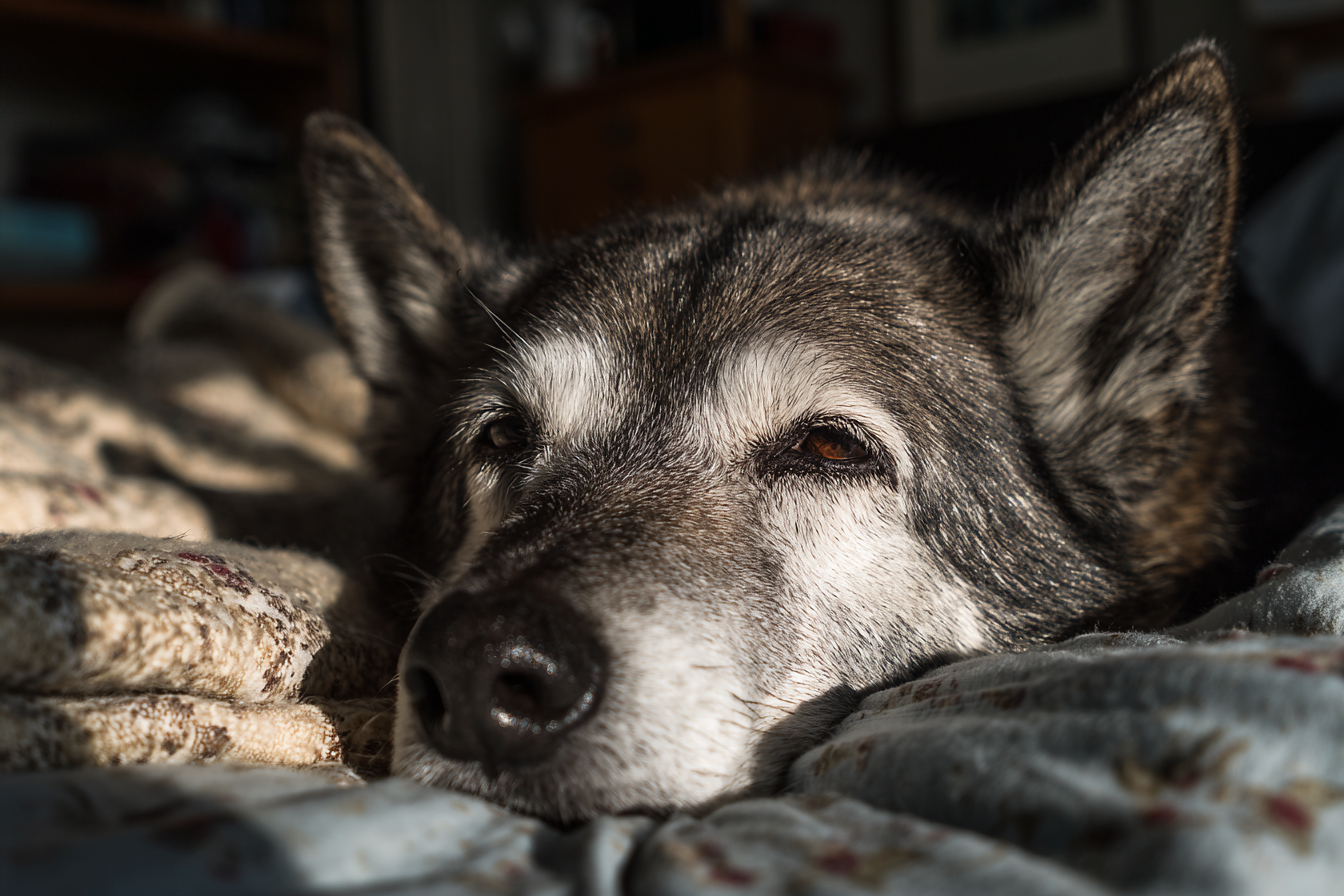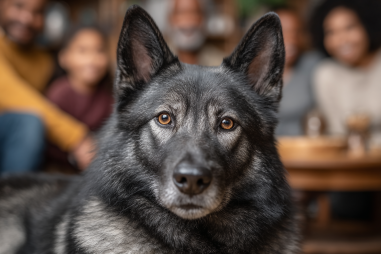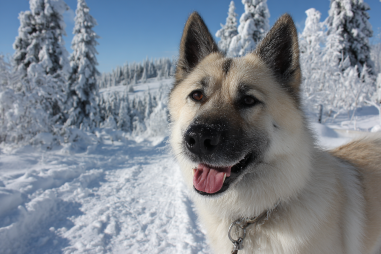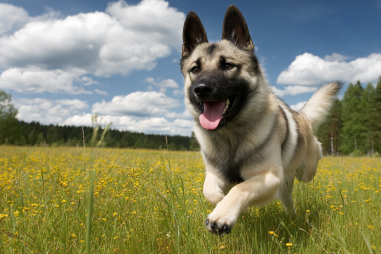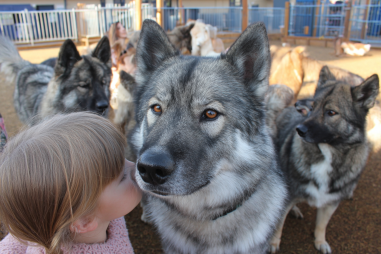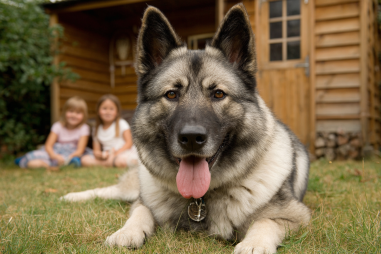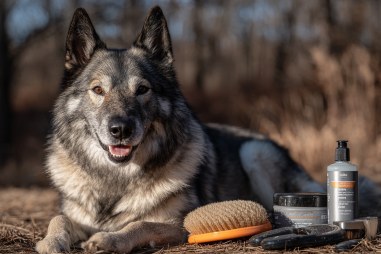As your loyal Norwegian Elkhound enters their senior years, it’s natural for you to notice changes in their behavior, health, and energy levels. Like all beloved pets, older Elkhounds need specialized care to enhance their quality of life and maintain their happiness. Understanding the unique aspects of senior Norwegian Elkhound care will help you support your furry friend through this new phase. This guide will walk you through essential tips on recognizing signs of aging, adapting nutrition and exercise, managing health needs, and creating a comfortable and stimulating environment for your senior canine companion.
Signs of Aging in Norwegian Elkhounds
Recognizing the signs of aging early is crucial to providing appropriate care for your Norwegian Elkhound. Typically, Elkhounds begin to show noticeable signs of aging around 7 to 8 years of age, though this can vary between individuals. Common indicators include:
- Slower Mobility: Senior Elkhounds may move more cautiously or show stiffness when getting up and down. They might avoid jumping or climbing stairs as frequently as before.
- Gray Hair and Coat Changes: You might notice more gray around the muzzle and face, and changes in the texture or fullness of the coat.
- Reduced Energy Levels: A decrease in enthusiasm for walks or playtime is typical, accompanied by longer nap times.
- Changes in Senses: Diminished hearing or eyesight can affect how your dog interacts with its environment.
- Altered Behavior: Senior Elkhounds can become more irritable or withdrawn. Some may also show confusion or disorientation, signs of cognitive decline.
- Weight Fluctuations: Either weight gain due to less activity or weight loss from health concerns can become apparent.
Observing these signs and consulting with your veterinarian will help you tailor care and detect early onset of health issues.
Adjusting Diet and Nutrition
Nutrition plays a vital role in supporting the health of your senior Norwegian Elkhound. As metabolism slows down with age, their dietary needs shift, and feeding them the right diet can prevent obesity and provide energy and essential nutrients for organ health.
Consider the following nutritional adjustments for your senior Elkhound:
- Lower Calories, Higher Protein: Reduce calorie intake to match decreased activity but maintain high-quality protein to preserve muscle mass and repair tissues.
- Joint Support Nutrients: Look for foods fortified with glucosamine and chondroitin to support joint health and mobility.
- Antioxidants and Vitamins: Ingredients rich in antioxidants (like vitamin E and C) help combat oxidative stress and may support cognitive function.
- Digestibility: Senior formulas often have easily digestible ingredients to ensure efficient nutrient absorption and gentle digestion.
- Hydration: Make sure fresh water is always available, and consider wet food or adding broth to increase fluid intake.
Before changing your dog’s diet, discuss options with your veterinarian to select the best food suited to your Elkhound’s specific health needs.
Exercise Modifications for Seniors
Exercise remains essential for senior Norwegian Elkhounds, but modifications are necessary to accommodate their changing physical capacity. Regular, gentle exercise encourages healthy joints and muscles, supports cardiovascular health, and keeps your dog mentally stimulated.
Here are some tips for adapting exercise routines for older Elkhounds:
- Shorter, More Frequent Walks: Instead of long vigorous walks, opt for shorter outings multiple times a day to avoid overexertion.
- Low-Impact Activities: Swimming is excellent if available, as it provides cardiovascular benefits without stressing the joints.
- Gentle Play: Engage in light play indoors or in a safe yard, avoiding rough interactions that could risk injury.
- Monitor for Fatigue and Pain: Watch for signs of tiredness, limping, or discomfort, and adjust activities accordingly.
Maintaining a routine that balances rest and activity will help your senior Elkhound stay strong and maintain a good quality of life.
Health Monitoring and Vet Visits
Regular veterinary visits become increasingly important as your Norwegian Elkhound ages. These checkups help detect health problems early and allow for timely interventions.
Routine health monitoring should include:
- Annual or Biannual Vet Checkups: More frequent visits may be necessary depending on your dog’s health status.
- Dental Health: Regular dental exams and cleanings are crucial as elderly dogs often face periodontal disease, which can affect overall health.
- Weight Tracking: Keep a log of your dog’s weight to detect any sudden or gradual changes.
- Monitoring Specific Conditions: Norwegian Elkhounds are prone to conditions such as hip dysplasia, hypothyroidism, and glaucoma. Watch for symptoms and notify your vet immediately.
- Blood Work and Screenings: Blood tests can provide insight into organ function, including kidney and liver health.
- Vaccinations and Parasite Control: Keep vaccinations current and maintain flea, tick, and heartworm prevention with your vet’s guidance.
Timely health assessments enable you to make informed decisions that improve your senior Elkhound’s wellbeing.
Pain Management and Supplements
As your Elkhound ages, managing pain, particularly from arthritis or joint issues, becomes a key concern. Subtle signs like reluctance to move or stiffness should not be ignored.
Common approaches to pain management and supplements include:
- Prescription Medications: Non-steroidal anti-inflammatory drugs (NSAIDs) and other pain relief medications prescribed by your veterinarian can improve mobility and comfort.
- Joint Supplements: Glucosamine, chondroitin sulfate, omega-3 fatty acids, and natural anti-inflammatory supplements can support joint health and reduce discomfort.
- Weight Control: Keeping your dog at a healthy weight reduces stress on joints, easing pain.
- Physical Therapy: Some older dogs benefit from massage, hydrotherapy, or rehabilitation exercises guided by veterinary professionals.
- Comfortable Bedding: Orthopedic beds cushion pressure points and contribute to better rest.
Always consult with your veterinarian before starting any supplements or treatments to ensure they are safe and appropriate for your dog.
Enhancing Comfort and Mental Stimulation
Ensuring your senior Norwegian Elkhound feels comfortable and mentally engaged is vital for their emotional health. Here are some ways to enhance both:
- Comfortable Living Space: Provide a warm, cozy area with soft bedding, ideally away from drafts and in a quiet part of your home.
- Assist With Mobility: Consider ramps or steps to help your dog access favorite spots without jumping or climbing if they have mobility challenges.
- Mental Stimulation: Gentle puzzle toys, scent games, and training sessions with positive reinforcement keep their mind active and prevent cognitive decline.
- Consistency and Routine: Older dogs thrive on predictable daily routines, which reduce stress and confusion.
- Social Interaction: Spend quality time petting, talking, and engaging with your dog to reinforce your bond and keep their spirits high.
Small adjustments and thoughtful care go a long way toward maintaining your senior Elkhound’s happiness and wellbeing.
Caring for a senior Norwegian Elkhound requires a mixture of attentiveness, love, and knowledge of their evolving needs. By recognizing signs of aging, tailoring nutrition and exercise, prioritizing health monitoring, managing pain, and fostering comfort and mental engagement, you ensure your loyal companion’s golden years are filled with dignity and joy. Remember, your bond and care are the greatest gifts you can offer your senior dog in this cherished stage of life.

